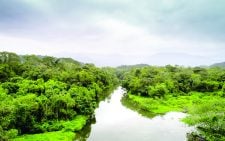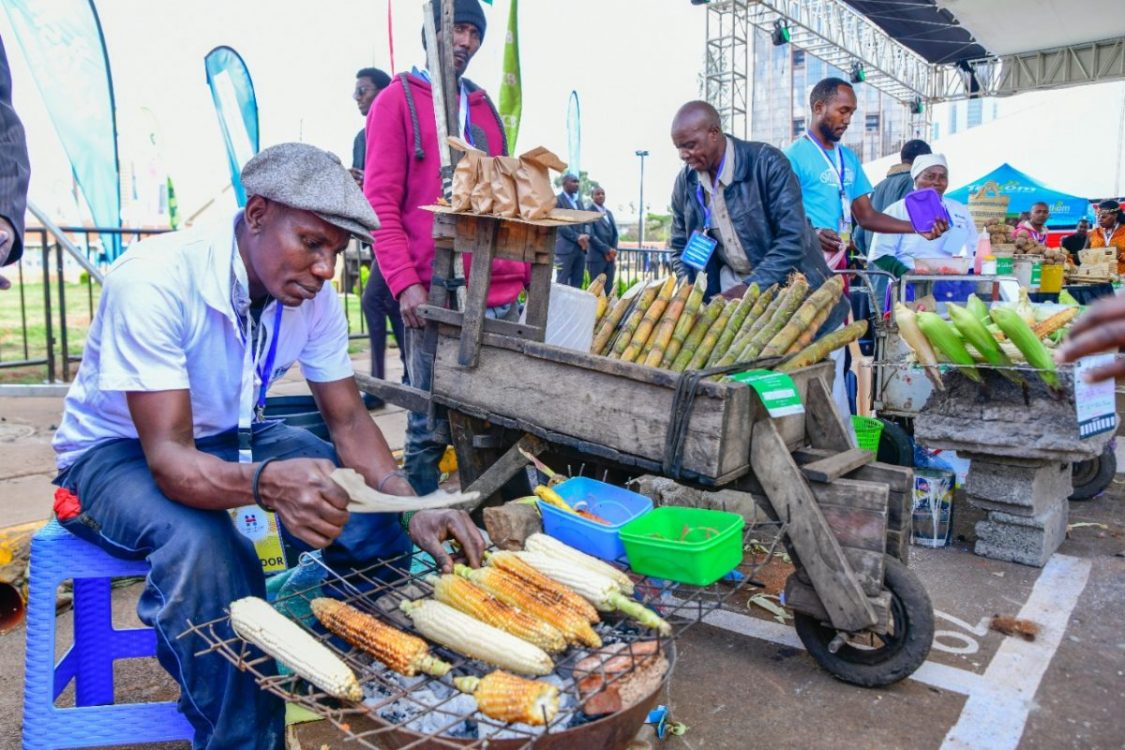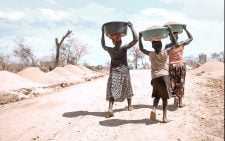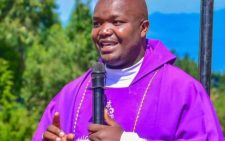On politics and environment, Kenya touched Pope’s heart
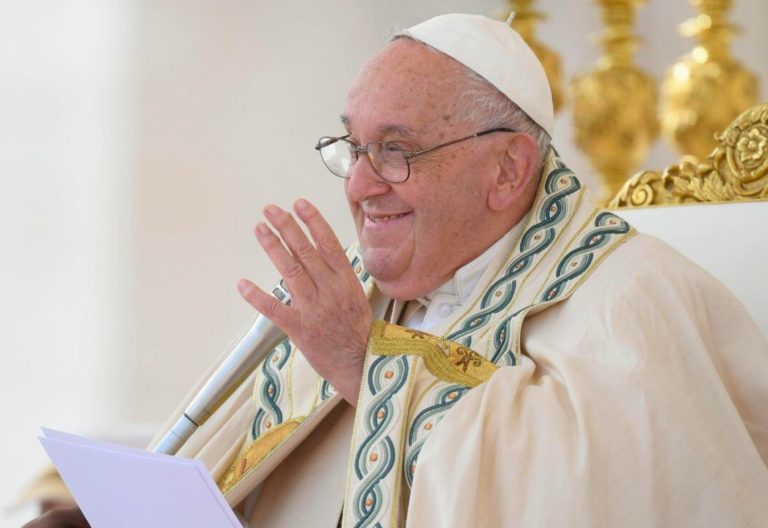
The world of conservation joins the rest of humanity in mourning Pope Francis who leaves a legacy as a strong defender of the oppressed and advocate for the protection of the planet.
During his visit to Kenya in November 2015, one of his first ones abroad shortly after his ordination in 2013, he boldly issued a statement that shook Kenyan leaders notorious for corruption, land grabbing and impunity.
Kenya was close to the Pope’s heart. He made an impassioned plea as a dark cloud hung above the country before the fresh 2017 presidential election ordered by the Supreme Court after it declared the previous one in August unconstitutional, null and void.
The country was deeply divided and any chance of resolving the political crisis through dialogue between the main protagonists, former President Uhuru Kenyatta and then opposition leader Raila Odinga hit a dead end on the back of hardline positions.
Raila withdrew and told his legions of supporters not to participate in the election, which he claimed has been poorly prepared and would not be free, fair and credible.
In Kenya then, as now, nationhood had fallen victim to electoral injustice, political intolerance, poor governance, corruption, socio-economic exclusion, violation of human rights, stifling of democracy and human-induced environmental destruction.
These inequities can breed violence, which God forbid; Kenyans always pray they would never be exposed to again, based on past experiences. The 2007/2008 post-election violence left 1,300 people dead, 600,000 displaced and property worth billions of shillings destroyed.
Constructive dialogue
Political adversaries recognise the gravity of such situations but probably not the threat that politics of intransigence pose to nationhood. They recourse to prayers, but their call to prayer sounds more hypocritical and self-centred than a genuine desire for equality, peace and unity among all Kenyans.
Kenyans again need divine intervention today. Pope Francis summed up the greatest desire among Kenyans and the world at large on the eve of that disputed fresh presidential election when he stated: “I am paying close attention to Kenya, which I visited in 2015. I pray the whole country will face the current difficulties in a climate of constructive dialogue.”
So as Kenyans navigate the intricate socio-political and economic terrain in the ongoing national conversation, they also have to contend with one of the greatest challenges facing humanity today – the climate crisis, an issue that the Pope often spoke out about.
In Kenya’s context, other than negative ethnicity and corruption, environmental degradation occasioned by climate change and human activity equally poses a major threat to the sustainable development and the citizens’ livelihoods.
Climate change is costing lives and presents a human rights challenge that needs to be entrenched in the ongoing national political, social and economic conversation. What climate scientists and experts prophesied many years ago has now come to pass. World over, the effects of disasters is displacing more people as compared to other reasons for displacement like conflict and violence.
Citizens expect the implementation of changes in policies, modification of behaviour and curbs in pollution to reverse damage to the environment and ensure climate justice in order to advance human rights and inclusive development.
Environmental degradation straddles the socio-economic spectrum, cuts across the political divide and is a grave danger to the people, their livelihoods and the country’s development prospects.
Political will and passion are needed to bring about real transformation requiring bold and decisive commitment at the national level to drive forward the 2030 Agenda and ensure a brighter future for people and planet.
Environmental sins
Kenya as the home of United Nations Environment Programme (UNEP), must demonstrate to its citizens and the international community that it is committed to the nationally determined contributions (NDCs) and national action plans, and the international climate change, biodiversity and environmental conventions.
When Pope Francis visited the informal settlement of Kangemi, the Holy Father made an impassioned plea for the environment in which he criticised the ‘new colonialism’, injustice and inequality, referring to land-grabbing.
“These are wounds inflicted by minorities who cling to power and wealth, who selfishly squander while a growing majority is forced to flee to abandoned, filthy and run-down peripheries,” Pope Francis said.
It is worth reflecting on the painful words that also aptly sum up the sins of environmental degradation, intolerance and lack of inclusivity that constitute a dark stain on our national conscience.
Pope Francis’ passionate concern for the oppressed and the environment cut across geography, race, cultures and faith.
Anglican Church of Kenya Archbishop Jackson ole Sapit joined other advocates for environmental justice within the Anglican Communion in sharing a tribute celebrating the Pope’s commitment to caring for creation.
Together with Bishop Julio Murray Thompson of Panama, Promat of Brazil and Bishop of Amazonia Marinez Bassoto, Bishop of Norfolk Graham Usher and Archbishop and Primate of Aotearoa New Zealand and Polynesia Sione Uluilakepa, they hailed Pope Francis as a “true leader and inspiration in so many aspects of faith, and particularly in calling us to Care for our Common Home” (Laudato Si, 2015)
From the beginning of his papacy, Pope Francis chose to identify himself with St Francis of Assisi, the man of poverty, the man of peace, the man who loves and protects creation. Ever since, he has set a prophetic example in hearing ‘the cry of the earth and the cry of the poor’, the clerics noted.
Throw-away cultures
Pope Francis’ seminal encyclical Laudato Si has challenged world leaders and mobilised millions of people for action. Laudato Si and the 2023 encyclical Laudate Deum, illuminate the links between environmental justice and social justice, the damage caused by throw-away cultures and unlimited drives for profit, and the need for rapid, urgent change in institutions, political systems and individual choice if we are to live well together on this earth.
It shines a light on the heart of our creator and the responsibilities of his children.
“As we look out at the unprecedented destruction caused this year by climate change, with the greatest impact on those who have done the least to fuel the problem, we recommit ourselves to action. We remember the rights of Indigenous peoples, not only as a matter of justice, but as a way to guarantee a future for all humanity,” the advocates for environmental justice within the Anglican Communion celebrated Pope Francis’ legacy, noting that in addition to being the spiritual leader of about 1.4 billion Catholics, Pope Francis advocated for taking action on climate change.
Over his 12 years as head of the Catholic Church, Francis repeatedly raised the problem of human-caused global heating from burning fossil fuels and he encouraged people—including world leaders—to do something about it.
“Above all else, we pay tribute to Pope Francis as a servant of Jesus Christ. He showed that no one is beyond the love of our Saviour and that no one is too powerful to be challenged; that faithfulness and joy can exist together, and that God’s ways are our path to true freedom.
